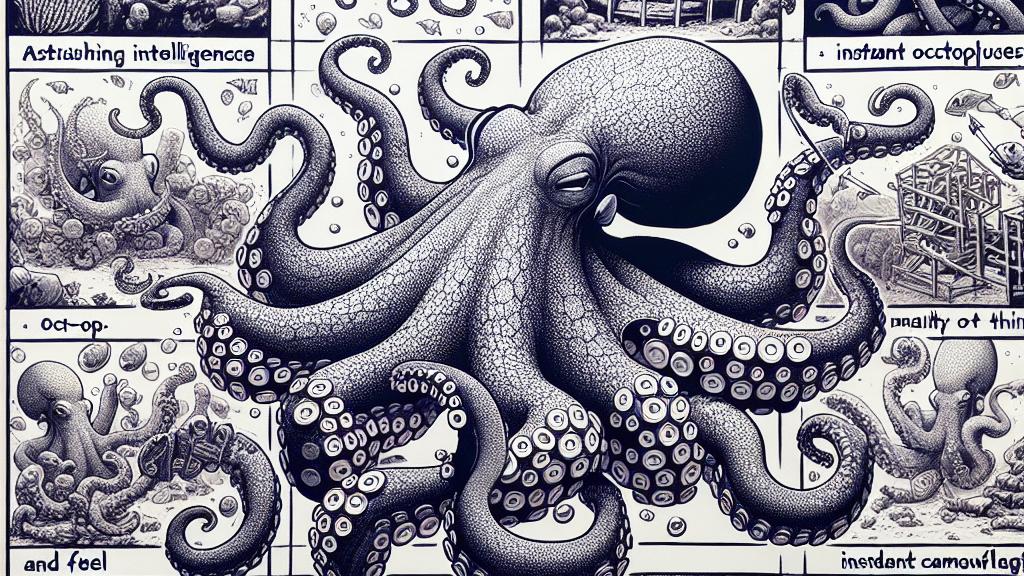Understanding Octopus Intelligence and Consciousness for Better Animal Welfare
Overview
- The exceptional cognitive abilities of octopuses challenge our perceptions of marine life intelligence.
- In response to rising awareness, states like California and Washington are enacting bans on octopus farming.
- Studies emphasize the need for ethical reconsideration regarding the treatment of these intelligent creatures.

The Astonishing Intelligence of Octopuses
Imagine diving into the ocean and encountering an octopus that can quickly solve puzzles and escape from tricky traps. That’s not a scene from a movie; it reflects the reality of what octopuses are capable of! In California and Washington, awareness of their remarkable intelligence has led to groundbreaking legislation banning octopus farming. This move isn’t just about protecting these creatures; it's a recognition of their ability to think and feel in ways we are just beginning to understand. For instance, octopuses can use tools, camouflage themselves in an instant, and even show playfulness—qualities that highlight their complex nature. Hawaii is also considering similar protective measures, advocating for the welfare of these fascinating beings, making us rethink our ethical obligations.
Exploring Cephalopod Diversity and Behavior
Cephalopods are a spectacular group of animals, featuring an astonishing range of species. From the deep-sea giant squid, reaching lengths of over 40 feet, to the tiny octopuses nestled in coral reefs, their diversity is truly captivating! Observe how some species, like the cunning cuttlefish, are social while others prefer solitude. The hunting strategies vary as well; for instance, an octopus might lie camouflaged on the ocean floor, waiting patiently for prey, while others chase after their meals with impressive speed. Each species exhibits unique intelligence that reveals the incredible adaptability of these creatures. With every new discovery, we encounter questions about their welfare and the knowledgeable lives they lead beneath the waves.
Rethinking Measures of Intelligence
Understanding octopus intelligence calls for a fresh perspective, given that conventional methods may not apply. Traditional assessments of intelligence often rely on comparisons with human capabilities, but these methods fall short when dealing with such unique beings. Consider this: the common octopus, known scientifically as Octopus vulgaris, has around 500 million neurons! This number rivals that of some mammals and birds. What’s even more astonishing is that a bulk of these neurons are located not in a centralized brain but throughout their arms, allowing for extraordinary problem-solving skills that enable them to manipulate their environment in real-time. Can you picture an octopus ‘thinking’ with its arms? This unique architecture challenges us to redefine intelligence itself and underscores the importance of ethical considerations in how we treat these magical creatures.

Loading...